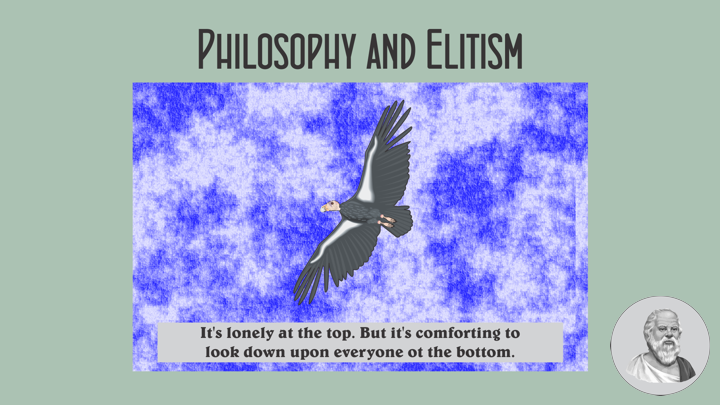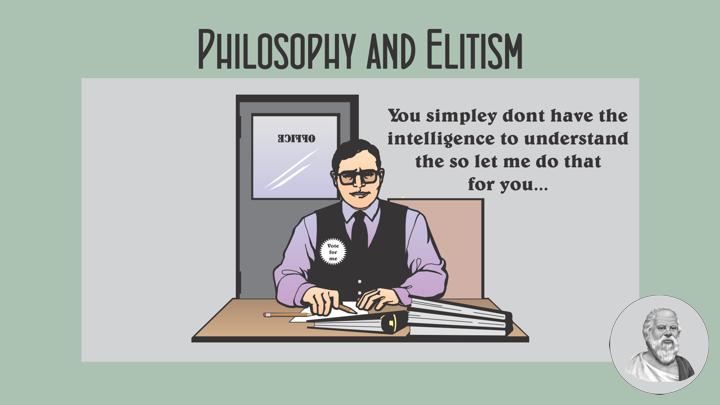——
#Spirituality #Philosophy #PhilosophyElitism #Elitism #Supernatural #WorkLifeBalance #SelfAwareness #SelfKnowledge #SelfTranscendence #PositiveMindset
——
——
——
Philosophy and Elitism
While the concept of populism has been one of the most used and most contested social science concepts in recent years, the concept of elitism still is strangely underspecified. Yet even in the debate centering solely on populism, the idea that there is a significant other, a counterpart that populism is up against and vice versa, is clearly gaining ground breeding notions of anti-populism, technocracy, technocratic populism and the like.
Essentially, the arguments for this refusal were based on the following, the functioning of the capitalist state must be explained based on the objective links between this political institution and class structure, whoever controls, manages and occupies the main nodes of power within the state apparatus, the bureaucracy, regardless of social origin, faith or specific motivations, has no choice but to reproduce the objective function of the state, which consists of maintaining the social cohesion of a given social formation this is equally valid for any type of political regime, bourgeois democracy, military dictatorship, fascism, authoritarianism, in which those in command of the political administration of the state are sensibly different.
Again in both cases, this prevailing negative judgment has a point but is somewhat premature at the same time. Representative democracy, I argue, is inconceivable without political elites. And it would probably be much worse without the continuous reminder of the promise of democracy which populism provides. The pathologies entailed in both cases come with the inherent tendency to overstretch one aspect of democracy at the expense of others.
Elitism is the belief or notion that individuals who form an elite, a select group of people perceived as having an intrinsic quality, high intellect, wealth, power, notability, special skills, or experience, are more likely to be constructive to society as a whole, and therefore deserve influence or authority greater than that of others. The term elitism may be used to describe a situation in which power is concentrated in the hands of a limited number of people.
In political and sociological theory, the elite are a small group of powerful people who hold a disproportionate amount of wealth, privilege, political power, or skill in a group. This group includes bureaucratic, corporate, intellectual, military, media, and government elites who control the principal institutions and whose opinions and actions influence the decisions of the policymakers. The basis for membership of a power elite is institutional power, namely an influential position within a prominent private or public organization.
The elitism is historically associated with hereditary or ruling social class. In many states, the elitism included the upper class of people with hereditary rank and titles. Term elitism is sometimes also applied to other elites, and is used as a more generic term when describing earlier societies. Upper class in modern societies is the social class composed of people who hold the highest social status, usually are the wealthiest members of class society, and wield the greatest political power. According to this view, the upper class is generally distinguished by immense wealth which is passed on from generation to generation.
Because the upper classes of a society may no longer rule the society in which they are living, they are often referred to as the old upper classes, and they are often culturally distinct from the newly rich middle classes that tend to dominate public life in modern social democracies. According to the latter view held by the traditional upper classes, no amount of individual wealth or fame would make a person from an undistinguished background into a member of the upper class as one must be born into a family of that class and raised in a particular manner to understand and share upper class values, traditions, and cultural norms.
Luc Paquin


